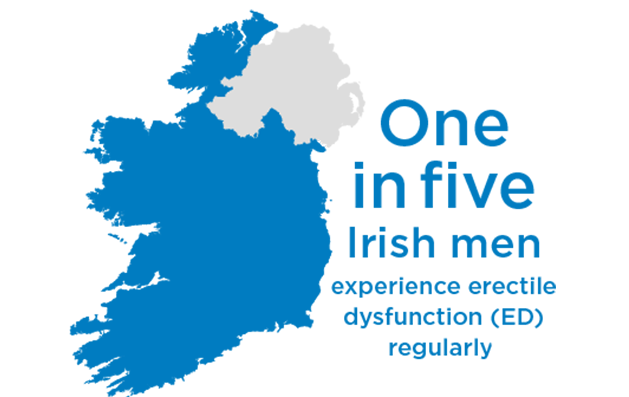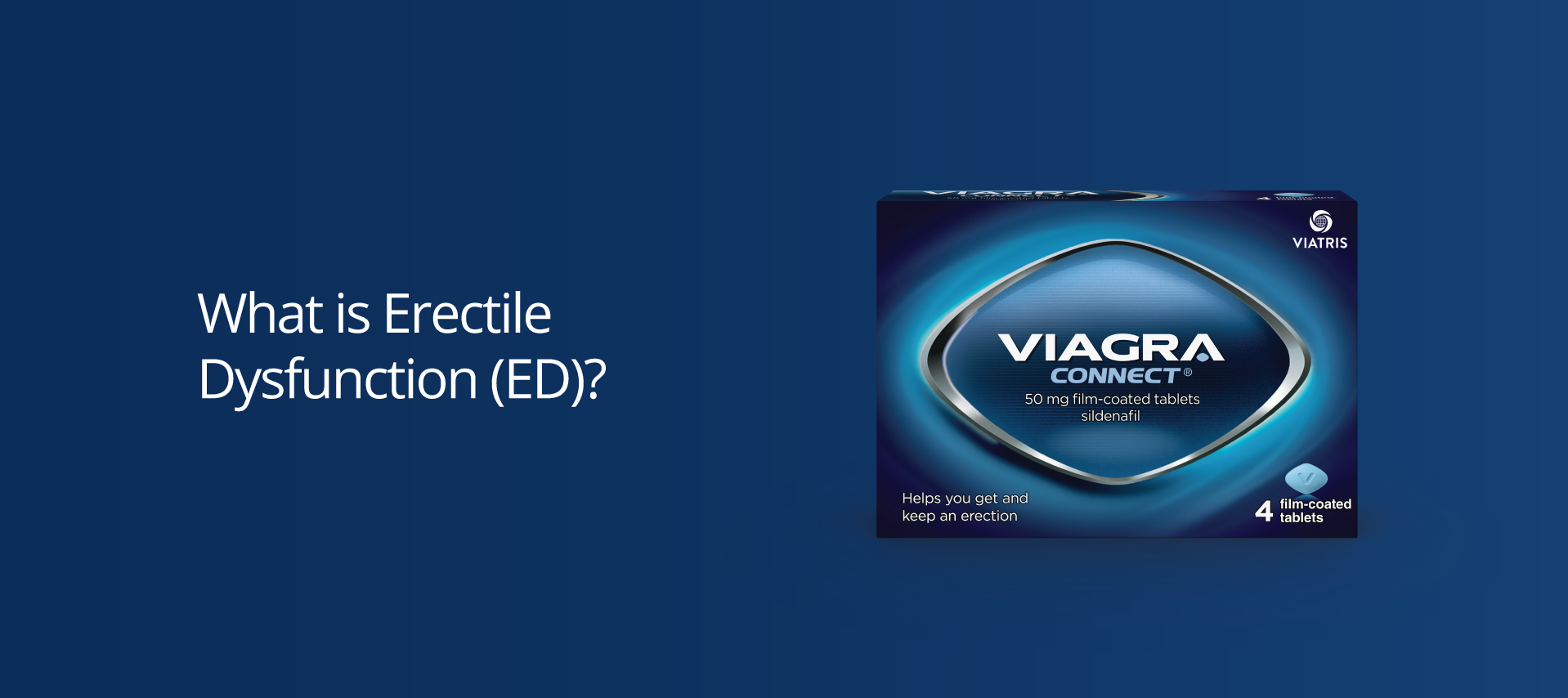Erectile dysfunction is a common complaint in men over 40 years of age but can affect men of all ages. If you find that you cannot achieve or maintain an erection firm enough for sex, you may have this medical condition. But there are treatments available! First, let’s outline the symptoms of ED, what causes the condition and how it can be treated.
What are the symptoms of erectile dysfunction (ED)?
Men can experience symptoms in different ways. For some with ED, it can be difficult to achieve or maintain an erection every time they try to have sex. For others, symptoms may happen once in a while. Either way, men suffering from ED find that:
- they cannot achieve an erection, or
- they may achieve an erection, but not firm enough for having sex. They may also lose their erection before or during sex.
In market research conducted on behalf of Viatris on erectile dysfunction in Irish men, it was identified that 1 in 3 experience ED regularly, so don’t worry – if you’re experiencing ED symptoms you are not alone. You can take action to get help.

Many men ignore their ED symptoms for years because they feel embarrassed about seeing a healthcare professional. It is helpful to remember that ED is a common medical condition that has nothing to do with masculinity and the symptoms of ED can be successfully treated in most cases.
What causes erectile dysfunction?
In general, erectile dysfunction is due to physical issues or illnesses. In some cases, however, psychological issues such as anxiety, depression or stress, and some types of medication can also cause ED. The main physical cause of ED is not enough blood flowing into the penis because the small blood vessels that supply the penis during an erection become blocked or narrow.
Smoking, high cholesterol and lack of exercise can all cause this problem, as can high blood pressure and diabetes. Erectile dysfunction can sometimes be an early warning sign of underlying health conditions even if you feel healthy.
While not all men with ED will have other health problems, it is always best to talk to a pharmacist or see your doctor who can fully assess your health and treat any condition you might have that could be causing your ED symptoms.
How is erectile dysfunction diagnosed?
Men who are unsure if their erection problems are symptoms of erectile dysfunction (ED) can benefit from speaking discreetly with a pharmacist. They will not give you a physical examination or ask you personal questions about your sex life, they will simply ask you questions about:
- your symptoms,
- your general physical health,
- any medicine you might be taking.
These are used to confirm if you have ED symptoms and to decide if Viagra Connect is a suitable treatment for you.
If Viagra Connect is right for you, the pharmacist will explain how to take it to get the best results. If they decide that Viagra Connect isn’t right for you, the pharmacist will refer you to your doctor who can discuss alternative treatment options with you in more detail. It is also advised to see your doctor for a health check-up within 6 months of starting to use Viagra Connect.
Can ED be treated?
Almost all instances of erectile dysfunction are treatable. By making a few lifestyle changes, you can help reduce the risk of erectile dysfunction (ED) symptoms and improve your overall physical and emotional well-being. You can start by:

- losing weight through healthy eating
- taking regular exercise
- reducing stress
- stopping smoking
- moderating alcohol intake and avoiding recreational drugs
As well as these lifestyle changes, you can ask your pharmacist or doctor for more details about the following available ED treatments:
- Viagra Connect, and other oral medications
- Injectable medicines
- Devices and implants
- Psychosexual counselling
- Specialist help from a urologist
Learn more about the available treatment options for erectile dysfunction and start on the road to recovery today.
IE-VIAC-2024-00051. DOP: November 2024
